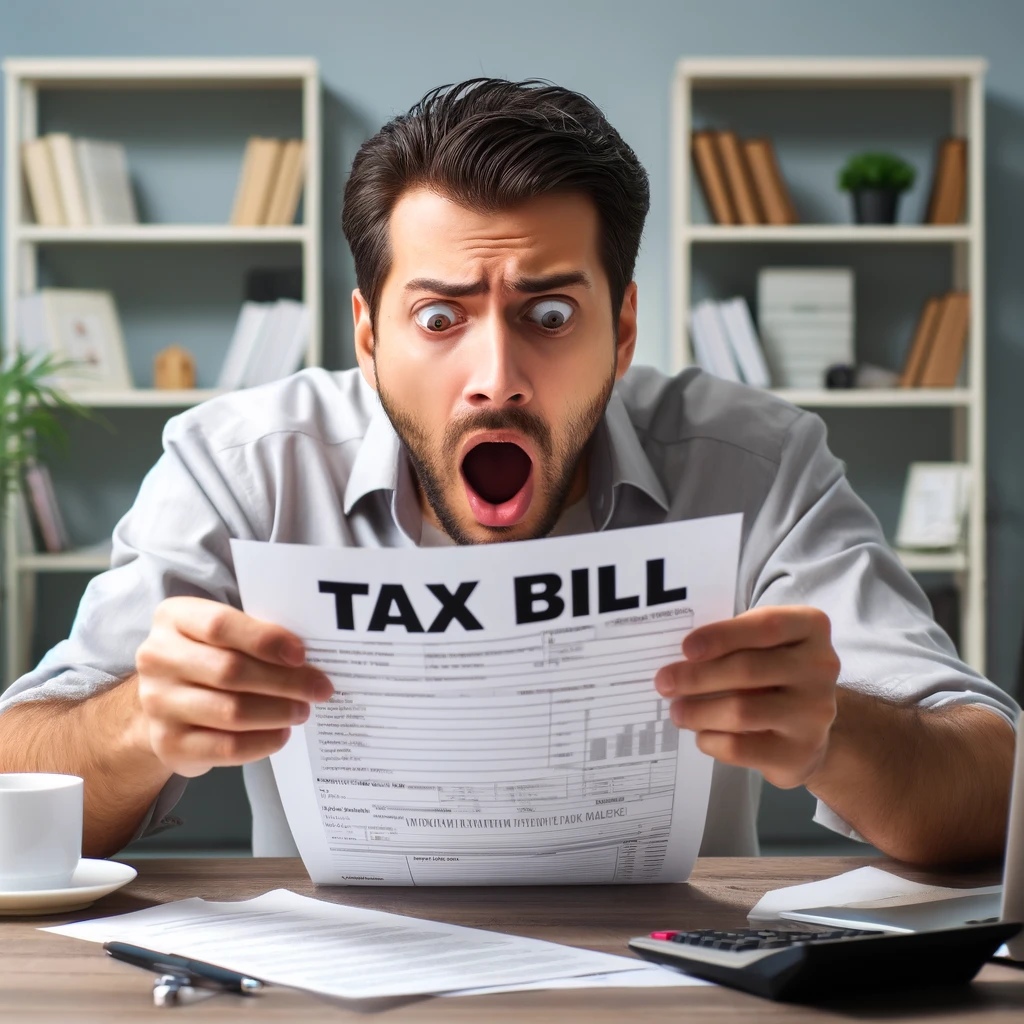Property Taxes: A Burden on Homeowners
Property taxes are a significant source of revenue for local governments, funding essential services such as public schools, police and fire departments, infrastructure maintenance, and other community services. However, high property taxes can place a substantial financial burden on homeowners for various reasons, affecting their economic well-being and housing market dynamics. Here’s a deeper explanation with a focus on 10 states with the highest property taxes:

Why Are Property Taxes So High?
Funding Public Services
One of the primary reasons for high property taxes is the need to fund public services. As community needs grow and inflation increases the costs of providing services, the demand for more revenue rises.
Education Funding
In many areas, a large percentage of property tax revenue is allocated to public schools. Quality education systems require significant investment in teachers, infrastructure, and educational materials.
Local Government Budgets
Local governments might have limited sources of revenue. With fewer options to generate income (such as through sales or income taxes), they often rely heavily on property taxes.
Assessment Increases
Property values tend to appreciate over time, and many jurisdictions reassess property values periodically. Higher property values lead to higher property taxes.
Economic Disparities
In some regions, economic challenges lead to reduced state aid or federal funding, forcing local governments to increase property taxes to make up the difference.
How High Property Taxes Hurt Homeowners
Financial Burden
High property taxes can be a significant financial burden, especially for fixed-income homeowners, like the elderly, who may struggle to meet these expenses.
Home Affordability
Increased property taxes can make home ownership less affordable, potentially pricing out prospective buyers and reducing the overall demand for housing.
Equity and Displacement
High property taxes can disproportionately affect lower-income and minority communities. Long-time residents may be forced to sell their homes and move to more affordable areas, leading to community displacement.
Market Dynamics
High property taxes can affect the housing market, potentially leading to lower home values if buyers are discouraged by the total cost of home ownership.
Economic Impact
Excessively high property taxes can reduce disposable income, leading to less consumer spending and a negative impact on the broader local economy.
10 States with the Highest Property Taxes
New Jersey
New Jersey has the highest property taxes in the nation at 2.46%. The high cost is largely due to the state’s commitment to funding its high-quality public education system. Despite recent efforts to control costs, residents still face significant tax bills, affecting housing affordability and causing financial strain for many homeowners.
Illinois
Illinois property taxes are among the highest at 2.29% due to the state’s financial challenges, including underfunded pensions and budget deficits. High property taxes help cover these costs but place a heavy burden on homeowners, leading to increased financial stress and concerns about housing affordability.
New Hampshire
In New Hampshire, property taxes are high at 2.09% because the state lacks a broad-based income or sales tax. Local governments rely heavily on property taxes to fund public services, including education. While this system supports essential services, it also means homeowners bear a significant tax burden.
Connecticut
Connecticut’s high property taxes at 2.16% are driven by the need to fund public services and education. The state has high per-pupil spending in its schools, contributing to the high taxes. These costs can make home ownership less affordable and place financial stress on residents.
Vermont
Vermont’s property taxes are high at 1.89% due to the state’s commitment to funding public services and education. The state uses property taxes as a primary revenue source, which can lead to significant financial burdens for homeowners, especially in rural areas with less economic activity.
Wisconsin
Wisconsin relies on property taxes to fund local services and education. Despite efforts to control costs, the state’s property taxes remain high at 1.71%, contributing to financial challenges for homeowners, particularly in areas with rising property values.
Texas
In Texas, the lack of a state income tax means local governments rely heavily on property taxes to fund services. This reliance leads to high property taxes at 1.90%, which can make housing less affordable and place a significant financial burden on homeowners.
Nebraska
Nebraska’s high property taxes at 1.70% are driven by the need to fund public services, particularly education. The state relies heavily on property taxes as a revenue source, leading to substantial financial burdens for homeowners and affecting housing affordability.
Michigan
Michigan’s property taxes are high at 1.45% due to the state’s efforts to fund public education and local services. Economic challenges and fluctuations in property values contribute to the high tax rates, placing financial stress on homeowners and affecting the housing market.
New York
New York’s high property taxes at 1.73% are driven by the state’s commitment to funding public services, including education. The high cost of living and property values in many areas contribute to the substantial tax burden on homeowners, affecting affordability and economic well-being.
In each of these states, high property taxes are a double-edged sword: they fund essential public services but also place a significant financial burden on homeowners. This dynamic has broad implications for housing affordability, economic equity, and the overall well-being of communities.
Here are the states with the lowest property taxes based on the provided list:
- Hawaii: 0.29%
- Alabama: 0.43%
- Colorado: 0.52%
- Nevada: 0.55%
- Utah: 0.57%
- South Carolina: 0.58%
- West Virginia: 0.59%
- District of Columbia: 0.59%
- Arizona: 0.60%
- Wyoming: 0.61%

